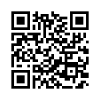TINGKAT TUTUR DALAM BUDAYA 'JAWA' DAN 'BATAK': Analisis Sosio-Pragmatik
Downloads
Javanese society which has some speech levels (or unggah-ungguh in Javanese)
called ngoko, krama madya, and krama inggil and the language used by the Batak
society which does not have such speech levels.
The difference concerning speech levels between the two societies is
influenced by their traditional ways of living. The traditional Javanese society is
divided into two levels: the priyayi (or the nobility) and wong cilik (or the
commoner) levels. A priyayi uses ngoko in communicating with a wong cilik but
the latter cannot use it in communicating with the former. In such a case, the wong
cilik uses krama inggil. This seems to indicate that solidarity in the Javanese
society is poor. On the other hand, the Batak society does not have such levels so
that there are no speech levels in its language. Though the Batak society has many
margas, which means that any members of the society having the same last name
belong to the same marga and are regarded as members of the same family (the
relevant term is dongan sabutuha), they are obliged to help other people who do
not belong to their marga because the philosophy of the Batak society is dalihan na
tolu, which explains that solidarity in the Batak society is very important.
Keywords: socio-pragmatic, ways of living, speech levels, solidarity
Downloads
The authors who publish this journal agree to the following requirements. The author retains the copyright regarding the work being simultaneously licensed below Creative Commons Attribution ShareAlike License.

Jurnal Diksi by Faculty of Languages, Arts, and Culture, Universitas Negeri Yogyakarta is licensed under a Creative Commons Attribution-ShareAlike 4.0 International License.
Based on a work at http://journal.uny.ac.id/index.php/diksi




















